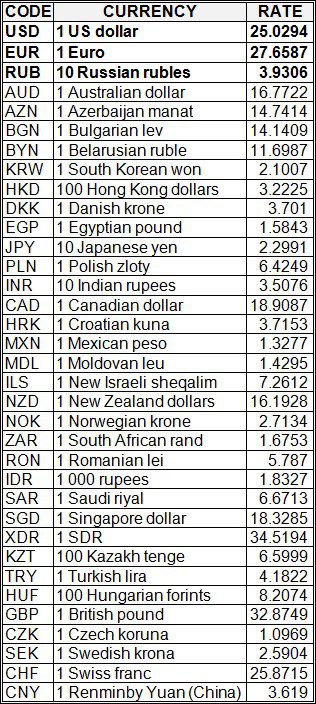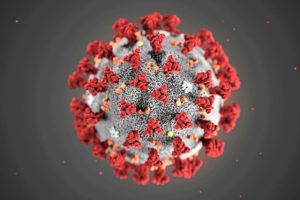
The passenger flow of the Lviv International Airport totaled 163,400 people in January 2020, which is 28.6% more than in January 2019.
The airport’s press service said on its Facebook, in particular, 143,400 people were transported on international flights, and 20,000 people on domestic flights.
The number of flights was 1,347 (1,134 international and 213 domestic), which is 6% more than in January 2019.
As reported, the passenger flow of the Lviv International Airport in 2019 amounted to 2.217 million people, which is 38.8% more than in 2018.

Sales of new passenger cars in January 2020 increased by a third compared to the first month of 2019, to 7,000 units, according to AUTO-Consulting. “January 2020 turned out to be very successful for car dealers. Almost all major automotive brands had two-digit growth, which gives reason to expect a very successful year,” the group said on its website.
Analysts of the group note the strengthening of the competition among brands in January 2020. Toyota was first, ahead of last year’s leader Renault, and its sales increased 81%, to 1,149 units.
Renault sales in January grew by 29%, to 1,045 units, which is slightly below the market, but allowed to stay in the lead and go beyond the 1,000 cars sold.
“Nissan has actively claimed its intention to become a leader. The Japanese brand increased sales in January by 25%, which allowed it to be third for the second month in a row,” the group said.
Skoda sales grew by 27%, to 437 units. This allowed the Czech brand dealers to bypass Kia, which closes the top five with a 9.7% increase in sales, to 430 units.
According to the analysts, Peugeot became the record holder for growth in the top 10 in January, having tripled sales, which allowed it to move to the eighth position from the 14th in January 2019 and occupy 4.6% of the market. Mitsubishi, which returned to the top 10, also noticeably increased its sales in January.
The first month of the year was also successful for Mercedes-Benz, which regained its status as a leader among premium brands: it increased sales by 53%, to 224 units.
According to AUTO-Consulting, the beginning of the year was also successful for Chinese brands: Chery increased sales by 66%, to 169 units, and the Haval brand grew seven-fold.
National bank of Ukraine’s official rates as of 03/02/20

Source: National Bank of Ukraine

Interchem double liability company (Odesa) donated 200,000 0 doses of an antiviral drug to border guards and medical workers to prevent infection with Chinese coronavirus. Interchem CEO Anatoliy Reder told Interfax-Ukraine that an agreement was reached during a meeting with Secretary of the National Security and Defense Council of Ukraine (NSDC) Oleksiy Danilov.
“The main parameters of our proposal are that we offer help and help for free. There are services that are the first to deal with patients who are infected with viruses and have high infection risks. These are border guards, who are staying at the entrance to the country, and employees of infectious hospitals. We will deliver a drug for prevention to employees of State Border Guard Service to all regions of Ukraine and to doctors and medical staff in all infectious hospitals, which are defined as basic medical facilities for hospitalization of those infected with Chinese coronavirus,” he said.
At the same time, Reder said that this is not about treatment, but exclusively about prevention.
“We do not pretend to have a panacea. We do not say that we have a cure for the Chinese coronavirus in our hands. However, we know for sure that the use of the drug gives an additional chance not to get sick,” he said.
Reder said that this drug has a proven immunomodulatory and antiviral effect.
Interchem is one of the leading pharmaceutical companies in Ukraine. It was founded in 1992. It is the only Ukrainian manufacturer of medicines for hard and cancer patients, as well as one of the drug suppliers under the Global Fund to Fight AIDS, Tuberculosis and Malaria programs.
ANTIVIRAL DRUG, BORDER GUARDS, CORONAVIRUS, INFECTION, INTERCHEM

Representatives of the Council of Europe have expressed their readiness for cooperation with Ukrainian law enforcement authorities in the field of the implementation of the provisions of the Budapest Convention on Cybercrime, ensuring the increase in the level of countering cybercrimes and investigating them. Head of the Cybercrime Division at the Council of Europe Alexander Seger gave this information after a meeting with the leadership of the Cyber Police Division of the National Police, the press service of the National Police of Ukraine has reported.
“We see that Ukrainian law enforcement agencies are interested in improving the situation with the legislative settlement of the issue of collecting digital evidence. We are ready to help in this by providing appropriate advice and sharing with the Ukrainian side the best practices that have already been implemented in the legislation of many European countries,” Seger said.
The Cyber Police Division presented its concept for the implementation of certain provisions of the convention, which are currently not available in Ukrainian legislation and which were supported by experts.
It is reported that cyber police, together with other executive bodies, is working with committees of the Verkhovna Rada of Ukraine to bring Ukrainian legislation in line with European one.
“The experience of countries that have fully implemented the Budapest Convention shows that such mechanisms significantly accelerate and increase the effectiveness of the police in countering and identifying persons committing crimes, including in cyberspace,” the cyber police said.